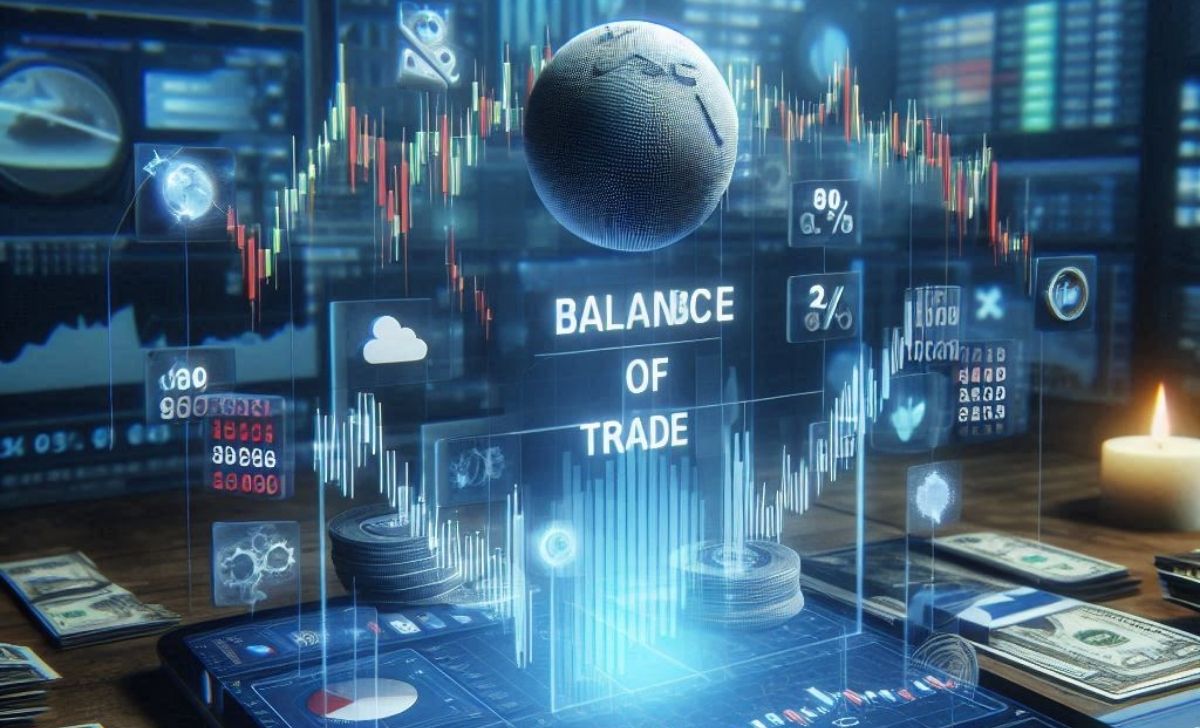Balance of trade definition is an important issue that forex participants need to pay attention to. Let’s explore the detailed definition of balance of trade in this article.
What is the definition of balance of trade? A specific definition of balance of trade
Balance of trade is a key economic indicator that measures the difference between the value of a country’s exports and imports over a certain period. It plays a crucial role in understanding a nation’s economic health, influencing everything from exchange rates to foreign investment.
In this article, Forex89 will dive deep into the definition of the balance of trade, how it affects the forex market, and its broader economic implications.
Understanding the Balance of Trade

The balance of trade is often used interchangeably with the trade balance, and it is a part of a country’s current account in the balance of payments. It reflects the net exports of goods and services, calculated by subtracting the value of imports from the value of exports. This figure is critical because it provides insight into the economic strength of a nation and its position in global trade.
Positive Balance
When a country exports more than it imports, it has a trade surplus. A surplus suggests that the country is producing goods and services that are in high demand internationally, and it can contribute to an increase in national income. This situation is generally seen as favorable for the nation’s economy.
Negative Balance
Conversely, if a country imports more than it exports, it has a trade deficit. A trade deficit can indicate an imbalance in the domestic economy, as more money is leaving the country to pay for imports than is coming in through exports. While a deficit isn’t necessarily bad in the short term, if it persists, it can lead to higher levels of foreign debt and affect the currency’s value.
Now that we understand what the balance of trade is, let’s explore how it influences the forex market—specifically on platforms like HFM, eToro, and Xtb – and its impact on currency movements.
How Does Balance of Trade Affect Forex Markets?
The balance of trade has a direct impact on the forex market because it influences currency supply and demand. In simple terms, when a country exports more than it imports, the demand for its currency increases. This is because foreign buyers need to purchase the country’s currency to pay for the exported goods. On the other hand, when a country imports more than it exports, there is higher demand for foreign currencies, which can lead to depreciation of the domestic currency.
For forex traders, the balance of trade is a key indicator to watch, as it provides insights into currency movements and overall market sentiment. A country with a trade surplus may see its currency appreciate, while a country with a trade deficit could experience a weakening of its currency.
Balance of trade and exchange rates are closely linked. Here’s how trade surpluses and deficits can drive currency value fluctuations.
The Relationship Between Balance of Trade and Exchange Rates
The balance of trade is intricately linked to exchange rates, which are determined by the supply and demand of currencies. If a country has a positive balance of trade (trade surplus), its currency will likely appreciate because there is more demand for the currency to pay for exports. This is because foreign buyers need the local currency to purchase goods and services from that country.
On the other hand, if a country faces a trade deficit, its currency may depreciate. When more money is spent on imports, demand for the domestic currency decreases, and the value of the currency may fall in comparison to other currencies.
Additionally, central banks and governments often intervene in forex trading to manage the effects of trade imbalances. Several factors shape a country’s balance of trade. Let’s break down the key influences that impact imports, exports, and overall trade flow.
Key Factors Affecting the Balance of Trade
Several factors can influence the balance of trade and, consequently, a nation’s position in global markets. These include:
- Exchange Rates: As mentioned earlier, exchange rates have a significant effect on the balance of trade. A weaker currency can make exports cheaper for foreign buyers, potentially improving a country’s trade balance. However, it can also increase the cost of imports, which could worsen the trade deficit.
- Global Economic Conditions: Economic conditions in both domestic and foreign markets can impact exports and imports. A global recession can reduce demand for a country’s exports, while an economic boom can increase imports as consumers and businesses demand more foreign goods.
- Commodity Prices: Countries that rely on exporting raw materials, such as oil or metals, are especially affected by fluctuations in commodity prices. Higher commodity prices can improve the trade balance by increasing export revenues, while lower prices can lead to a trade deficit.
- Trade Policies: Trade agreements, tariffs, and import/export regulations can also influence the balance of trade.
For forex traders, balance of trade data can provide valuable market insights. Let’s examine how traders analyze and apply this data in their strategies.
How Forex Traders Use Balance of Trade Data
Forex traders closely monitor balance of trade data because it provides valuable insights into the potential movement of currency pairs. A sudden shift in trade balance, such as a move from a surplus to a deficit, can lead to significant volatility in the forex market.
Traders also use balance of trade data in conjunction with other economic indicators, such as GDP, inflation rates, and interest rates, to gain a more comprehensive view of a country’s economic outlook. By understanding the implications of trade balances, forex traders can make more informed decisions in the highly volatile foreign exchange markets.
The balance of trade is a fundamental economic concept that provides a snapshot of a country’s international trade position. It directly impacts exchange rates and is a key consideration for forex traders. Whether a country has a trade surplus or a deficit, the balance of trade influences currency values, which in turn affects global markets.

Scarlett Vaughn is a highly skilled financial expert and a founding member of Forex89. With deep expertise in Forex trading, risk management, and market analysis, she has helped shape Forex89 into a premier platform for traders worldwide. Scarlett is known for her strategic insights and innovative approaches to financial markets, making her a trusted advisor for both novice and experienced investors. Email: [email protected]













